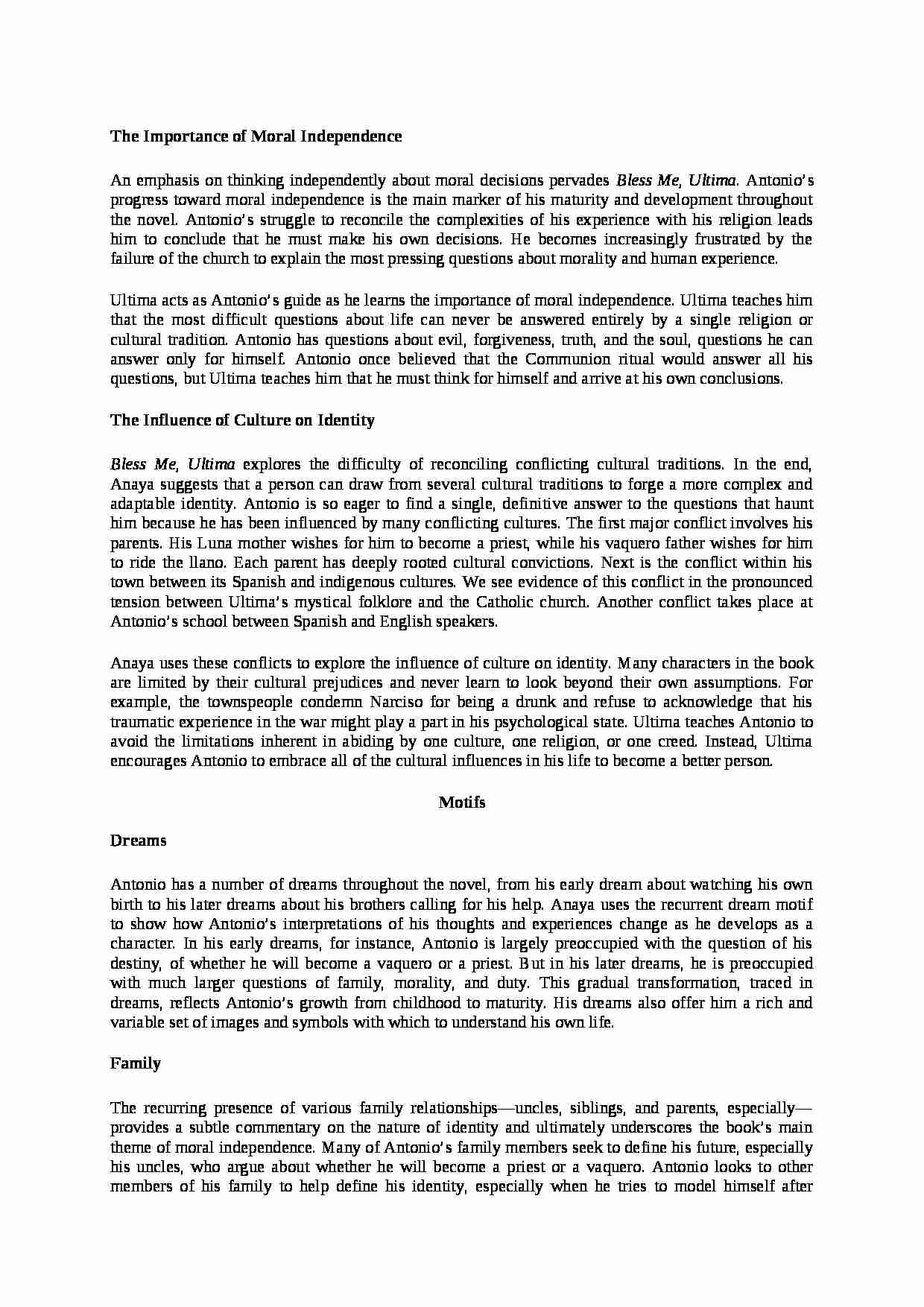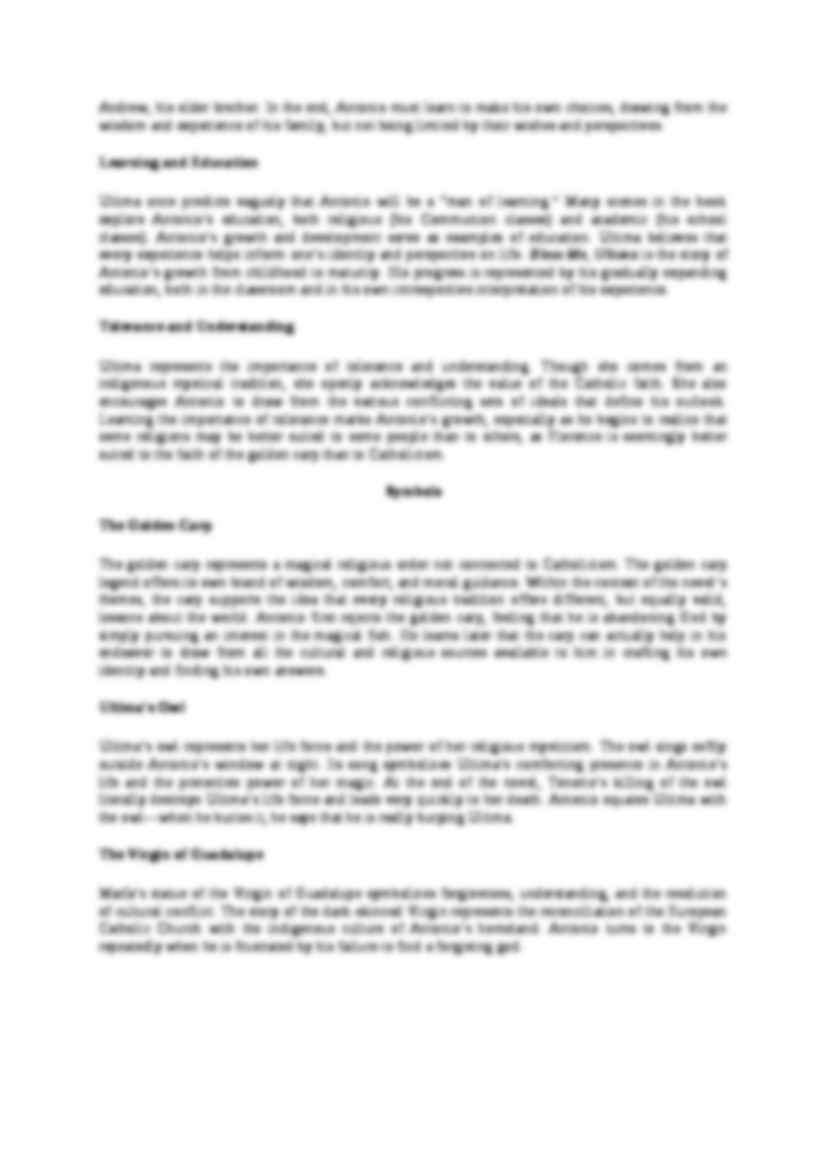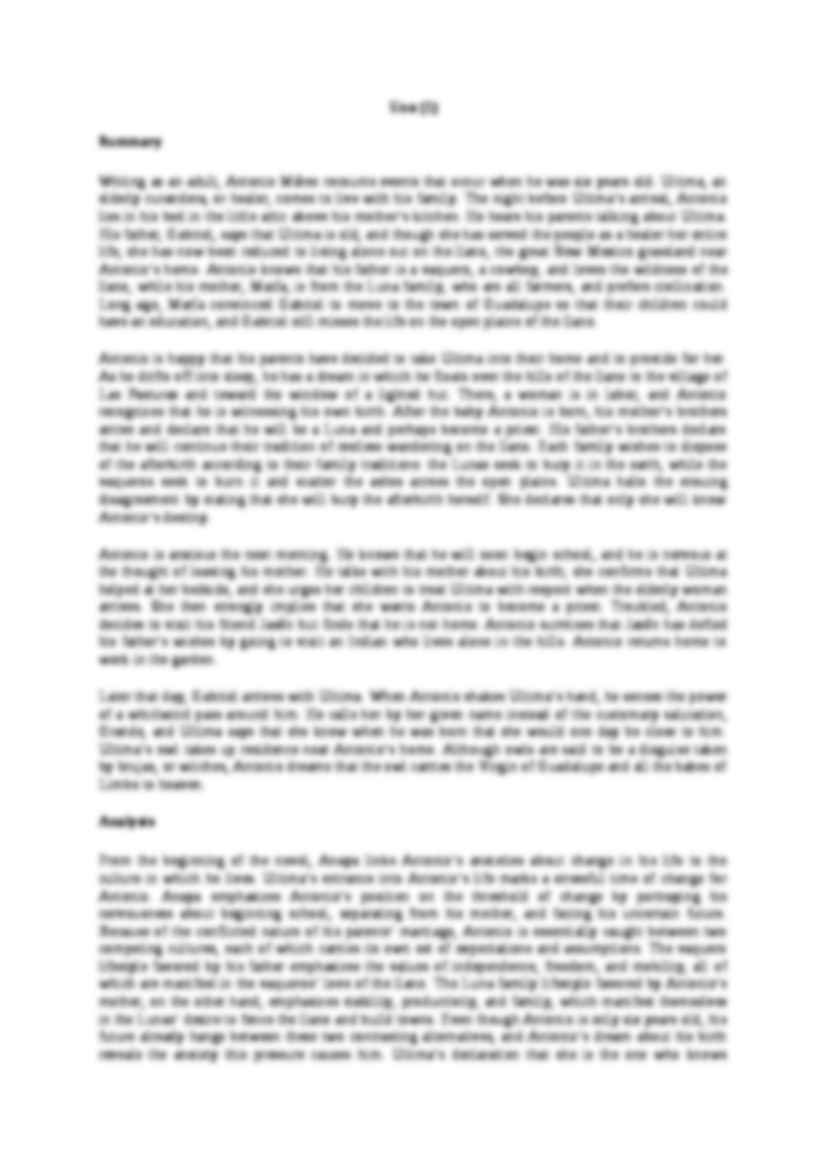To tylko jedna z 4 stron tej notatki. Zaloguj się aby zobaczyć ten dokument.
Zobacz
całą notatkę



The Importance of Moral Independence An emphasis on thinking independently about moral decisions pervades Bless Me, Ultima. Antonio's progress toward moral independence is the main marker of his maturity and development throughout the novel. Antonio's struggle to reconcile the complexities of his experience with his religion leads him to conclude that he must make his own decisions. He becomes increasingly frustrated by the failure of the church to explain the most pressing questions about morality and human experience. Ultima acts as Antonio's guide as he learns the importance of moral independence. Ultima teaches him that the most difficult questions about life can never be answered entirely by a single religion or cultural tradition. Antonio has questions about evil, forgiveness, truth, and the soul, questions he can answer only for himself. Antonio once believed that the Communion ritual would answer all his questions, but Ultima teaches him that he must think for himself and arrive at his own conclusions.
The Influence of Culture on Identity Bless Me, Ultima explores the difficulty of reconciling conflicting cultural traditions. In the end, Anaya suggests that a person can draw from several cultural traditions to forge a more complex and adaptable identity. Antonio is so eager to find a single, definitive answer to the questions that haunt him because he has been influenced by many conflicting cultures. The first major conflict involves his parents. His Luna mother wishes for him to become a priest, while his vaquero father wishes for him to ride the llano. Each parent has deeply rooted cultural convictions. Next is the conflict within his town between its Spanish and indigenous cultures. We see evidence of this conflict in the pronounced tension between Ultima's mystical folklore and the Catholic church. Another conflict takes place at Antonio's school between Spanish and English speakers. Anaya uses these conflicts to explore the influence of culture on identity. Many characters in the book are limited by their cultural prejudices and never learn to look beyond their own assumptions. For example, the townspeople condemn Narciso for being a drunk and refuse to acknowledge that his traumatic experience in the war might play a part in his psychological state. Ultima teaches Antonio to avoid the limitations inherent in abiding by one culture, one religion, or one creed. Instead, Ultima encourages Antonio to embrace all of the cultural influences in his life to become a better person.
Motifs
Dreams Antonio has a number of dreams throughout the novel, from his early dream about watching his own birth to his later dreams about his brothers calling for his help. Anaya uses the recurrent dream motif to show how Antonio's interpretations of his thoughts and experiences change as he develops as a character. In his early dreams, for instance, Antonio is largely preoccupied with the question of his destiny, of whether he will become a vaquero or a priest. But in his later dreams, he is preoccupied with much larger questions of family, morality, and duty. This gradual transformation, traced in dreams, reflects Antonio's growth from childhood to maturity. His dreams also offer him a rich and variable set of images and symbols with which to understand his own life.
(…)
… woman arrives. She then strongly implies that she wants Antonio to become a priest. Troubled, Antonio decides to visit his friend Jasón but finds that he is not home. Antonio surmises that Jasón has defied his father's wishes by going to visit an Indian who lives alone in the hills. Antonio returns home to work in the garden.
Later that day, Gabriel arrives with Ultima. When Antonio shakes Ultima's…
… facing his uncertain future. Because of the conflicted nature of his parents' marriage, Antonio is essentially caught between two competing cultures, each of which carries its own set of expectations and assumptions. The vaquero lifestyle favored by his father emphasizes the values of independence, freedom, and mobility, all of which are manifest in the vaqueros' love of the llano. The Luna family…
… manner. His love of the open llano is just as spiritual as the Lunas' love of their farmland, but it embodies an incompatible view of the world. He cannot easily adapt to the slow and stable life of towns and farms, as we see in Gabriel's general antipathy toward life in Guadalupe and in his deep nostalgia for life on the open plains.
…
... zobacz całą notatkę






Komentarze użytkowników (0)